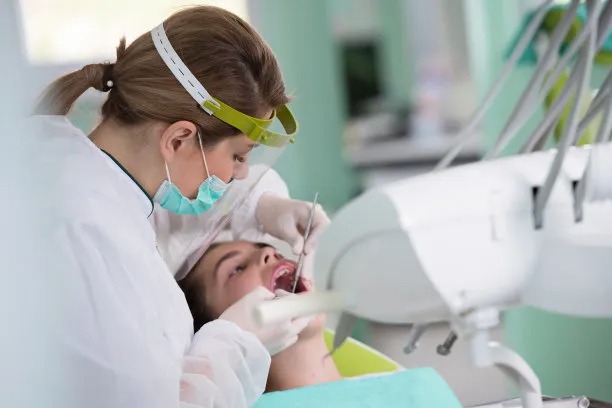Considering the Importance of Tooth Extraction and Its Impact on Overall Oral Health and Wellbeing
Summary: Tooth extraction plays a crucial role in maintaining overall oral health and wellbeing. This article explores the various aspects of tooth extraction, including when it is necessary, its benefits for oral health, its psychological effects, and post-extraction care. Understanding these factors helps individuals make informed decisions when facing the prospect of tooth extraction. Additionally, this article emphasizes the importance of dental consultations and the overall positive impact that timely extraction can have on ones health.
1. When is Tooth Extraction Necessary?

Tooth extraction may be necessary in several situations, primarily when a tooth is severely decayed or damaged beyond repair. Dental caries can lead to extensive destruction of the tooth structure, making it impossible to restore it with fillings or crowns. In such cases, extraction becomes the only viable solution to alleviate pain and prevent further complications.
Another reason for extraction is periodontal disease. This condition affects the supporting structures of teeth and can cause significant bone loss. When teeth become loose or there is severe gum infection, extraction can help restore oral health and prevent the spread of infection to adjacent teeth.
Additionally, tooth extraction may be recommended as part of orthodontic treatment. Sometimes, overcrowded teeth necessitate the removal of certain teeth to achieve the desired alignment. This proactive measure aids in improving overall dental aesthetics and function.
2. Benefits of Tooth Extraction for Oral Health
One of the fundamental benefits of tooth extraction is the prevention of infections. Retaining a tooth that is badly infected can lead to systemic issues as bacteria can enter the bloodstream, posing risks to overall health. Extraction helps to eliminate this risk and promotes a healthier oral environment.
Another significant advantage is the relief from chronic pain associated with problematic teeth. Individuals often suffer from discomfort due to tooth decay or infection. Removing the source of pain can significantly enhance quality of life, allowing individuals to engage more fully in daily activities.
Moreover, extraction can pave the way for better dental alignment. By addressing overcrowding or other alignment issues through extraction, the remaining teeth can shift into more optimal positions. This adjustment not only improves the appearance of the smile but can also enhance chewing function and hygiene.
3. Psychological Effects of Tooth Extraction
The impact of tooth extraction extends beyond physical health; it also significantly affects mental wellbeing. Many individuals face anxiety or distress regarding tooth loss. Acknowledging and addressing these feelings is essential for maintaining emotional health. Consulting with dental professionals can alleviate concerns and foster a positive outlook on the procedure.
Furthermore, tooth extraction, when executed correctly, can lead to a boost in self-esteem. Many individuals are self-conscious about their dental issues and may avoid social situations as a result. Once problematic teeth are removed, individuals often report feeling more confident in their smiles, which can greatly enhance social interactions.
Finally, understanding the necessity of tooth extraction can foster a more proactive approach to oral health. When individuals recognize the importance of addressing dental issues promptly, they are likely to engage more consistently in routine dental care, contributing positively to their overall mental wellbeing.
4. Post-Extraction Care and Recovery
Post-extraction care is crucial for ensuring a smooth recovery. After a tooth is removed, its essential to follow the dentists directives, including resting and avoiding strenuous activities. This not only aids healing but also limits complications such as excessive bleeding or infections.
Maintaining oral hygiene during the recovery period is important. Patients should be gentle while brushing and avoid the extraction site to prevent disturbing the healing tissue. Using saltwater rinses can promote cleanliness and help reduce the risk of infection.
Lastly, follow-up appointments may be necessary to monitor the healing process. Keeping these appointments allows dental professionals to address any potential complications early on. Adhering to these guidelines not only enhances recovery but also reinforces the importance of long-term oral health management.
Summary:
In summary, tooth extraction is an important procedure that supports overall oral health and wellbeing. Understanding when extraction is necessary and its benefits can guide individuals in making informed decisions about their dental care. By focusing on the psychological aspects and proper post-extraction care, patients can experience a more positive journey in maintaining their oral health.
This article is compiled by Vickong Dental and the content is for reference only.



